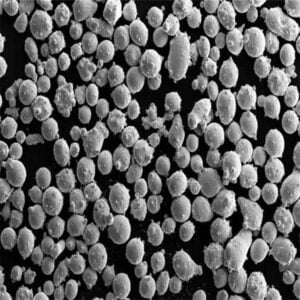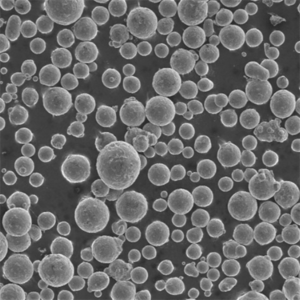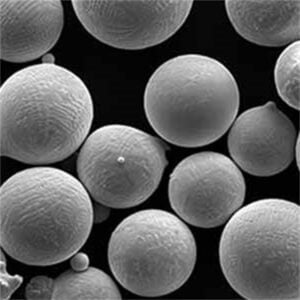Ti Powder for Dental Industry
Table of Contents
When it comes to the dental industry, materials matter more than one might think. Titanium (Ti) powder has emerged as a game-changer, promising superior performance, biocompatibility, and reliability. Let’s dive deep into the world of Ti powder and see why it’s making waves in dental applications.
Overview of Ti Powder in Dental Applications
Titanium powder is widely used in the dental industry for creating implants, crowns, bridges, and various other dental appliances. Its unique properties make it an ideal material for dental applications, offering unmatched strength, lightweight, and excellent biocompatibility.
Why Titanium Powder?
- Biocompatibility: Titanium is non-toxic and is not rejected by the body, making it perfect for dental implants.
- Strength and Durability: Offers high strength-to-weight ratio, ensuring long-lasting dental solutions.
- Corrosion Resistance: Titanium doesn’t corrode, even when in constant contact with bodily fluids.
- Osseointegration: Promotes bonding with bone, ensuring stable and secure dental implants.
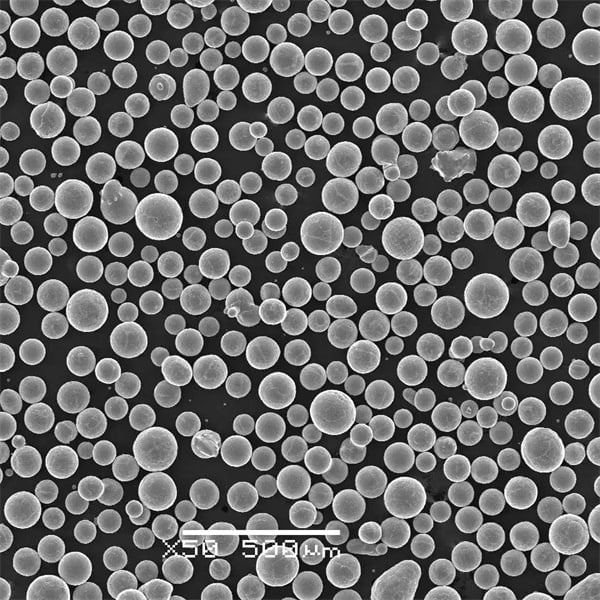
Types of Ti Powder for Dental Applications
Here’s a breakdown of various Ti powder models used in the dental industry:
| Model | Composition | Properties | Characteristics |
|---|---|---|---|
| Ti-6Al-4V | 90% Ti, 6% Al, 4% V | High strength, lightweight | Commonly used, excellent biocompatibility |
| Ti-5Al-2.5Fe | 92.5% Ti, 5% Al, 2.5% Fe | Enhanced strength, fatigue resistance | Improved mechanical properties |
| Ti-6Al-7Nb | 86% Ti, 6% Al, 7% Nb | Superior biocompatibility, strength | Alternative to Ti-6Al-4V, better tissue response |
| CP-Ti (Grade 1) | 99.9% Ti | Excellent corrosion resistance | Pure titanium, highly biocompatible |
| CP-Ti (Grade 2) | 99.8% Ti | Good strength, ductility | Widely used in medical devices |
| CP-Ti (Grade 3) | 99.7% Ti | Higher strength, good weldability | Suitable for complex structures |
| CP-Ti (Grade 4) | 99.5% Ti | Highest strength, excellent corrosion resistance | Best for load-bearing implants |
| Ti-15Mo | 85% Ti, 15% Mo | Beta titanium alloy, flexible | Used for orthodontic wires |
| Ti-13Nb-13Zr | 74% Ti, 13% Nb, 13% Zr | High biocompatibility, non-allergenic | Used in implants and prosthetics |
| Ti-12Mo-6Zr-2Fe | 80% Ti, 12% Mo, 6% Zr, 2% Fe | Beta titanium alloy, high strength | Ideal for dental frameworks |
Applications of Ti Powder in Dental Industry
Titanium powder’s versatility and unique properties make it suitable for a variety of dental applications:
| Application | Use | Benefits |
|---|---|---|
| Dental Implants | Used to replace missing teeth | Promotes osseointegration, durable |
| Crowns and Bridges | Create long-lasting dental restorations | Strong, corrosion-resistant |
| Orthodontic Devices | Brackets, wires, and other appliances | Flexible, non-allergenic |
| Prosthetics | Custom dental prosthetics | High biocompatibility, customizable |
| Surgical Instruments | Tools used in dental surgeries | Lightweight, strong, durable |
| Dentures | Metal frameworks for dentures | Strong, corrosion-resistant |
| Bone Grafts | Bone augmentation and repair | Promotes bone growth and integration |
| Temporary Abutments | Supports during the healing phase | Easy to work with, biocompatible |
| Orthopedic Implants | Jaw and facial reconstruction | Strong, promotes bone healing |
| Surface Coatings | Coating for other dental materials | Enhances strength and longevity |
Specifications, Sizes, Grades, Standards
When selecting Ti powder for dental applications, it’s crucial to consider specifications, sizes, grades, and standards to ensure optimal performance.
| Specification | Details |
|---|---|
| Particle Size | 15-45 µm, 45-105 µm, 105-150 µm |
| Purity | ≥ 99.5% |
| Grade | CP-Ti Grade 1, 2, 3, 4; Ti-6Al-4V; etc. |
| Standards | ASTM F67, ASTM F136, ISO 5832-2, ISO 5832-3 |
| Density | 4.51 g/cm³ |
| Melting Point | 1,668°C (3,034°F) |
| Young’s Modulus | 110 GPa |
Suppliers and Pricing Details
Choosing the right supplier for Ti powder is vital for ensuring quality and consistency in dental applications.
| Supplier | Model | Price per kg | Notes |
|---|---|---|---|
| ATI Metals | CP-Ti Grade 1 | $150 – $200 | Reliable, high purity |
| AP&C | Ti-6Al-4V | $250 – $300 | High-quality aerospace-grade powders |
| TLS Technik | Ti-6Al-7Nb | $200 – $250 | Excellent for biomedical applications |
| GKN Hoeganaes | CP-Ti Grade 2 | $180 – $220 | Good balance of cost and performance |
| Praxair Surface Technologies | Ti-15Mo | $300 – $350 | Specializes in custom alloy powders |
| Carpenter Technology | CP-Ti Grade 3 | $170 – $210 | Consistent quality, reliable supplier |
| LPW Technology | Ti-13Nb-13Zr | $220 – $270 | High biocompatibility, niche markets |
| Sandvik | Ti-5Al-2.5Fe | $190 – $230 | Advanced materials for medical use |
| Arcam AB | Ti-12Mo-6Zr-2Fe | $240 – $290 | High-strength powders for complex parts |
| Tekna | Ti-6Al-4V | $260 – $310 | Superior powder consistency |
Advantages and Limitations of Ti Powder in Dental Industry
Understanding the pros and cons of Ti powder helps in making informed decisions for dental applications.
| Parameter | Advantages | Limitations |
|---|---|---|
| Strength | High strength-to-weight ratio | Expensive compared to other materials |
| Biocompatibility | Excellent tissue response | Requires precise manufacturing |
| Corrosion Resistance | Doesn’t corrode in bodily fluids | Complex machining and processing |
| Osseointegration | Promotes bone bonding | High cost of raw materials |
| Flexibility | Suitable for orthodontic applications | Brittle in thin sections |
| Durability | Long-lasting dental solutions | Specialized equipment needed |
| Non-Allergenic | Safe for patients with metal allergies | Limited availability of some grades |
| Customization | Can be tailored to specific needs | Potential for contamination if not handled properly |
| Lightweight | Comfortable for patients | Requires expert handling |
| Aesthetic | Can be coated for a natural look | Surface finishing can be challenging |
Composition of Ti Powder for Dental Industry
The composition of Ti powder significantly impacts its properties and suitability for various dental applications.
| Composition | Element | Percentage |
|---|---|---|
| Pure Titanium | Ti | 99.5% – 99.9% |
| Ti-6Al-4V | Ti | 90% |
| Al | 6% | |
| V | 4% | |
| Ti-6Al-7Nb | Ti | 86% |
| Al | 6% | |
| Nb | 7% | |
| Ti-15Mo | Ti | 85% |
| Mo | 15% | |
| Ti-13Nb-13Zr | Ti | 74% |
| Nb | 13% | |
| Zr | 13% | |
| Ti-5Al-2.5Fe | Ti | 92.5% |
| Al | 5% | |
| Fe | 2.5% |
Characteristics of Ti Powder for Dental Industry
Key characteristics of Ti powder make it the preferred choice for dental applications:
- High Purity: Ensures excellent biocompatibility and minimizes the risk of adverse reactions.
- Controlled Particle Size: Optimizes performance for specific applications like implants and orthodontics.
- Custom Alloy Compositions: Tailored to meet the needs of various dental procedures.
- Consistency and Quality: Reliable suppliers ensure consistent quality for predictable outcomes.
Grades of Ti Powder for Dental Industry
Different grades of titanium powder are used based on the specific requirements of dental applications:
| Grade | Description | Applications |
|---|---|---|
| CP-Ti Grade 1 | Commercially pure, high ductility | Dental implants, surgical instruments |
| CP-Ti Grade 2 | Commercially pure, good balance | Crowns, bridges, prosthetics |
| CP-Ti Grade 3 | Commercially pure, high strength | Orthopedic implants, dental frameworks |
| CP-Ti Grade 4 | Commercially pure, strongest | Load-bearing implants, complex structures |
| Ti-6Al-4V | Alloyed, high strength | Implants, orthodontic devices |
| Ti-6Al-7Nb | Alloyed, superior biocompatibility | Sensitive patients, alternative to Ti-6Al-4V |
| Ti-15Mo | Beta alloy, flexible | Orthodontic wires, prosthetics |
| Ti-13Nb-13Zr | Non-allergenic, high biocompatibility | Dental implants, prosthetics |
Comparing Ti Powder Models: Pros and Cons
To choose the best titanium powder model, it’s essential to compare their advantages and limitations.
| Model | Pros | Cons |
|---|---|---|
| Ti-6Al-4V | High strength, lightweight, widely used | Expensive, potential for allergic reactions |
| Ti-6Al-7Nb | Superior biocompatibility, strength | Higher cost, less available |
| CP-Ti Grade 1 | High purity, excellent corrosion resistance | Lower strength compared to alloys |
| CP-Ti Grade 4 | Highest strength, corrosion resistance | More difficult to machine |
| Ti-15Mo | Flexible, suitable for orthodontics | Expensive, specialized applications |
| Ti-13Nb-13Zr | Non-allergenic, biocompatible | Costly, niche market |
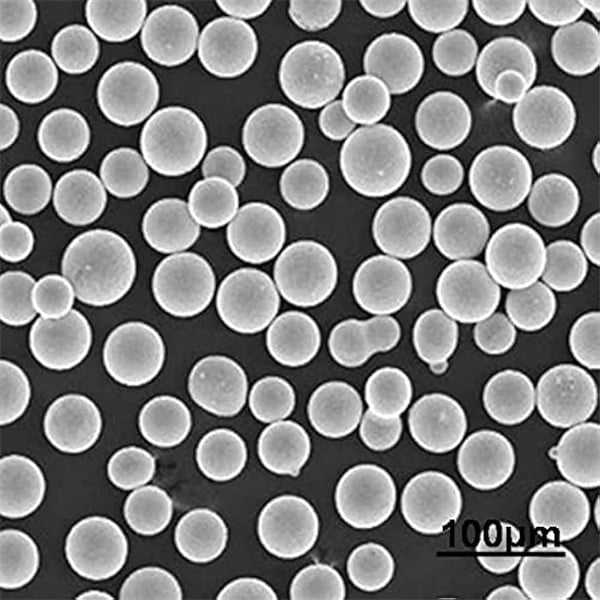
FAQs
| Question | Answer |
|---|---|
| Why is titanium powder used in dental implants? | Titanium powder is used for its biocompatibility, strength, and ability to integrate with bone. |
| What is the best grade of titanium for dental applications? | CP-Ti Grade 4 is preferred for its strength and corrosion resistance, though Ti-6Al-4V is also popular. |
| How does titanium powder promote osseointegration? | Titanium’s surface properties encourage bone cells to attach and grow, leading to stable implants. |
| Are there any risks associated with titanium implants? | Risks are minimal, but potential allergic reactions or implant failure can occur in rare cases. |
| How does the cost of titanium powder compare to other materials? | Titanium powder is more expensive than some other materials, but its benefits often justify the cost. |
| Can titanium powder be customized for specific applications? | Yes, various alloys and particle sizes can be tailored to meet specific dental needs. |
| What are the common suppliers of titanium powder? | Major suppliers include ATI Metals, AP&C, TLS Technik, and GKN Hoeganaes. |
| How should titanium powder be stored? | It should be stored in a dry, cool place, away from contaminants to maintain its quality. |
| Is titanium powder recyclable? | Yes, titanium powder can be recycled, contributing to sustainability in the dental industry. |
| What are the alternatives to titanium powder for dental applications? | Alternatives include zirconia, stainless steel, and cobalt-chromium alloys, though they may not offer the same benefits. |
Conclusion
Titanium powder stands out as a premier material for the dental industry, offering unmatched benefits in terms of biocompatibility, strength, and durability. By understanding the various types, compositions, and applications, dental professionals can make informed decisions to provide the best care for their patients. Whether it’s for implants, crowns, or orthodontic devices, titanium powder proves to be a reliable and effective choice.
So, are you ready to revolutionize your dental practice with the power of titanium? Dive in and explore the possibilities!
Share On
MET3DP Technology Co., LTD is a leading provider of additive manufacturing solutions headquartered in Qingdao, China. Our company specializes in 3D printing equipment and high-performance metal powders for industrial applications.
Inquiry to get best price and customized Solution for your business!
Related Articles
About Met3DP
Recent Update
Our Product
CONTACT US
Any questions? Send us message now! We’ll serve your request with a whole team after receiving your message.

Metal Powders for 3D Printing and Additive Manufacturing
COMPANY
PRODUCT
cONTACT INFO
- Qingdao City, Shandong, China
- [email protected]
- [email protected]
- +86 19116340731







